Dogs With Newborns: How To Prepare And Introduce Your Dog To A Baby
Bringing a new baby into the family is exciting and joyous, but it can also be overwhelming for your furry four-legged friend. Dogs are compassionate creatures and a new addition to the household can disrupt their routine and cause them to feel anxious or even jealous.
It's important to take steps to prepare and introduce your dog to your newborn to ensure a smooth transition and a happy home for everyone. In this guide, we will discuss the necessary preparations you should make before your baby's arrival and tips on how to introduce your dog to your newborn safely and positively.
Why Is It Important To Prepare Your Dog For A New Baby?
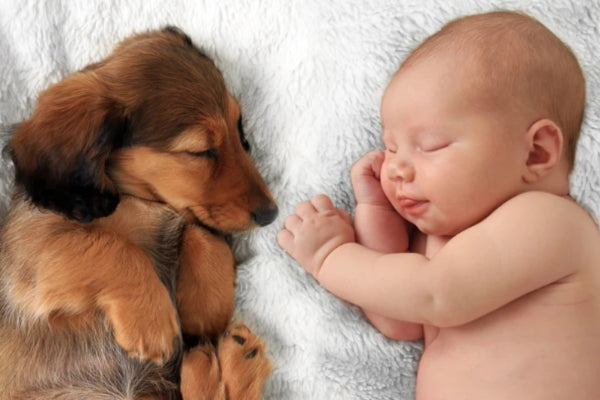
Preparing your dog for a new baby is crucial for the well-being of both your dog and your family. Dogs are creatures of routine and any major change in their environment can cause stress and anxiety. Introducing a new baby into the household means major changes to your dog's daily routine, attention, and resources. Without proper preparation, these changes can lead to behavioral issues such as aggression, destructive behavior, and even depression.
Moreover, a newborn is extremely vulnerable and delicate, and it's essential to ensure that your dog understands the boundaries and behaviors expected around the baby. Dogs may not understand that infants are fragile beings and may unintentionally harm them out of curiosity or playfulness. Proper preparation and training can help avoid these situations and keep both your dog and your baby safe.
In addition, preparing your dog for a new baby can also help strengthen the bond between them. By including your dog in the preparations and making them feel like a valued member of the family, you are setting the foundation for a loving and harmonious relationship between your dog and your child.
Step-By-Step Guide On Prepare And Introduce Your Dog To A Baby
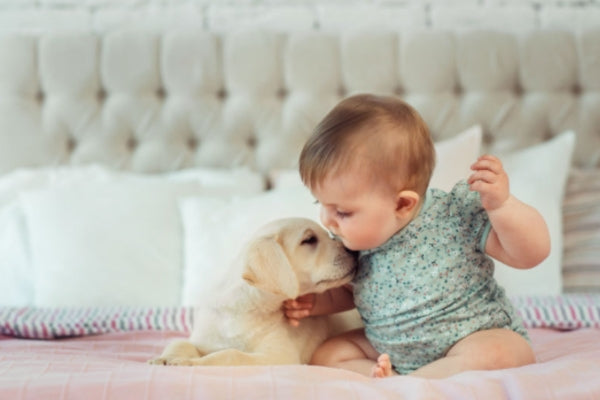
There are several important steps to take to prepare and introduce your dog to a new baby. Follow this step-by-step guide for a smooth and successful transition.
Prepare Your Dog For Changes In Routine
As mentioned earlier, dogs thrive on routine and any major changes to their daily schedule can cause stress and anxiety. With a new baby in the household, your dog's routine is bound to change. To ease this transition, it's important to start preparing your dog for these changes before the baby arrives.
Start slowly adjusting your dog's schedule by gradually changing the times of meals, walks, and playtime. This will help your dog get used to a new routine and minimize the impact of sudden changes.
In addition, if you plan on making any significant changes to your dog's sleeping arrangements or access to certain parts of the house, it's best to implement these changes before the baby arrives. This way, your dog won't associate these changes directly with the baby's arrival and will have time to adjust.
Introduce New Baby Scents And Sounds
Dogs rely heavily on their sense of smell and hearing, so it's important to introduce them to the scents and sounds of a new baby before the actual arrival. This can help your dog become familiar with these new stimuli and reduce any potential anxiety or fear.
Before the baby arrives, have someone bring home a blanket or clothing item that smells like the baby. Let your dog sniff and become accustomed to it, and reward them for calm and positive behavior.
You can also play recordings of baby sounds, such as crying or cooing, to help your dog get used to these new noises. This will also help you gauge how your dog reacts and make any necessary adjustments before the actual arrival of the baby.
Set Up Boundaries And Safe Spaces For Your Dog
As much as we love our dogs, it's important to establish boundaries between them and the new baby. This not only protects the baby from potential harm but also helps your dog understand their role and behavior around the baby.
Designate certain areas of the house as off-limits for your dog, such as the nursery or playroom. You can use baby gates or closed doors to create these boundaries.
In addition, make sure your dog has a safe and comfortable space of their own, such as a crate or bed in a quiet area. This will give them a place to retreat when they need some alone time and also help prevent any accidents or unwanted interactions with the baby.
Gradually Introduce Your Dog To The Baby In A Controlled Environment
When it's time for your baby to come home from the hospital, it's best to introduce your dog to the new baby in a controlled environment. This means keeping your dog on a leash and having another person present to help with the introduction.
Start by allowing your dog to sniff and observe the baby from a safe distance. Reward calm behavior with treats and praise. Gradually move closer as your dog becomes more comfortable, always keeping them on a leash for safety.
If your dog becomes overly excited or displays any signs of aggression, take a step back and try again later. It's important to introduce them slowly and positively.
Supervise All Interactions Between Your Dog And Baby
Until you are confident that your dog is comfortable and well-behaved around the baby, it's important to always supervise their interactions. This means keeping a close eye on your dog's body language and behavior, as well as the baby's safety.
If your dog shows any signs of discomfort or unwanted behavior, intervene immediately and redirect their attention. It's also important to never leave your dog alone with the baby, even for a few seconds.
As your dog becomes more comfortable and accustomed to the baby, you can gradually increase their interactions but always under close supervision.
Reward Positive Behavior From Your Dog Around The Baby
Positive reinforcement is key when it comes to training dogs. When your dog displays calm and gentle behavior around the baby, make sure to reward them with treats and praise. This will reinforce good behavior and help your dog associate the baby with positive experiences.
On the other hand, if your dog displays any undesirable behavior, such as jumping or barking around the baby, it's important to redirect their attention and discourage these actions. Consistency is key in reinforcing good behavior and correcting unwanted behaviors.
Seek Professional Help If Necessary
If you have concerns about your dog's behavior around the baby or are having difficulty with the introduction, don't hesitate to seek professional help. A certified dog trainer or behaviorist can provide valuable guidance and support in preparing your dog for the new addition to your family.
They can also assess your dog's behavior and offer personalized training techniques to address any specific issues. Seeking professional help can ensure a smooth and safe transition for both your dog and your new baby.
Remember, every dog is different and may react differently to changes in the household. Be patient and understanding with your furry companion as they adjust to their new role in the family. With proper preparation and supervision, your dog can become a loving and gentle presence around the baby.
Does Having A Dog Benefit The Child?
Having a dog can have numerous benefits for children. Dogs can provide companionship, and entertainment, and even help teach responsibility and empathy.
For young children, having a dog around can promote physical activity through playtime and walks, which also helps improve their motor skills and coordination. Children may also learn about caring for another living being by helping with tasks such as feeding and grooming the dog.
Dogs can also offer emotional support for children, especially during times of stress or transition. The presence of a caring and loving dog can help children feel safe and secure, which is important for their overall development.
Furthermore, studies have shown that children who grow up with dogs may have lower rates of allergies and asthma due to exposure to pet dander at an early age. This can also strengthen their immune system and reduce their risk of developing certain health conditions.
Misconceptions About Dogs And Babies
There are many misconceptions surrounding the relationship between dogs and babies. Some people believe that having a dog around a baby can be dangerous, while others think that getting rid of their dog is necessary for their child's safety.
However, with proper preparation and supervision, these concerns can be addressed and overcome. Dogs can coexist peacefully and even provide numerous benefits for children.
Another misconception is that dogs are naturally aggressive towards babies. In reality, it's important to remember that every dog is an individual and their behavior depends on various factors, such as breed, training, and past experiences.
It's also a common misconception that all dogs need to be "alpha" or dominant in the household. This can lead to harmful training techniques and misunderstandings of a dog's behavior.
Ultimately, parents need to educate themselves on proper dog handling and training techniques, as well as actively supervising their interactions with the baby. With understanding and preparation, dogs can be a great addition to any family with children.
Mistakes To Avoid When Introducing A Dog To A Baby
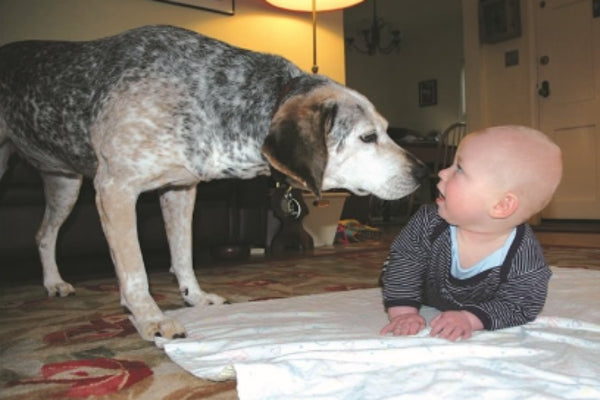
Certain mistakes should be avoided when introducing a dog to a baby. These can include:
- Rushing the process: It's important to take things slow and gradually introduce your dog to the baby. Rushing can cause unnecessary stress and anxiety for both the dog and the baby.
- Not supervising interactions: As mentioned earlier, it's crucial to always supervise any interactions between your dog and the baby. This helps ensure everyone's safety and allows you to intervene if needed.
- Neglecting your dog's needs: With a new baby, it's easy to get distracted and forget about your dog's needs. However, this can lead to feelings of jealousy and neglect in your furry companion. Make sure to still give them attention and maintain their routine.
- Ignoring warning signs from your dog: Dogs communicate through body language, so it's important to pay attention to any signs of discomfort or stress. Ignoring these warning signs can lead to unwanted behaviors or even aggression towards the baby.
- Leaving the dog alone with the baby: This cannot be stressed enough - never leave your dog alone with the baby, even for a few seconds. Accidents can happen in an instant and it's always better to err on the side of caution.
By avoiding these mistakes and properly preparing your dog for the new addition to your family, you can create a safe and harmonious environment for both your furry friend and your baby. Remember to always seek professional help if needed and stay patient and understanding throughout the process.
FAQs
Is It Safe To Have A Dog Around A Newborn Baby?
Yes, with proper preparation and supervision, it is completely safe to have a dog around a newborn baby. It's important to carefully introduce the two and always supervise their interactions.
Can All Dogs Be Trusted Around Babies?
No, not all dogs can be trusted around babies. Some dogs may have previous traumas or aggressive tendencies that make them a potential danger to the baby. It's important to assess your dog's behavior and seek professional help if needed.
How Can I Prepare My Dog For The Arrival Of A New Baby?
Some ways to prepare your dog for a new baby include gradually introducing them to baby-related items, such as cribs and strollers, desensitizing them to baby sounds, and seeking professional training if needed. It's also important to maintain their routine and give them attention throughout the transition.
Conclusion
Dogs and babies can coexist peacefully and even form strong bonds with proper preparation and supervision. Parents need to educate themselves on proper dog handling techniques, avoid common mistakes, and always prioritize the safety of both the baby and the dog.
With patience, understanding, and love, dogs can become a valuable addition to any family with children. Remember to always seek professional help if needed and never leave your dog alone with the baby. With these precautions in place, both your baby and your furry friend can thrive in a safe and loving environment.




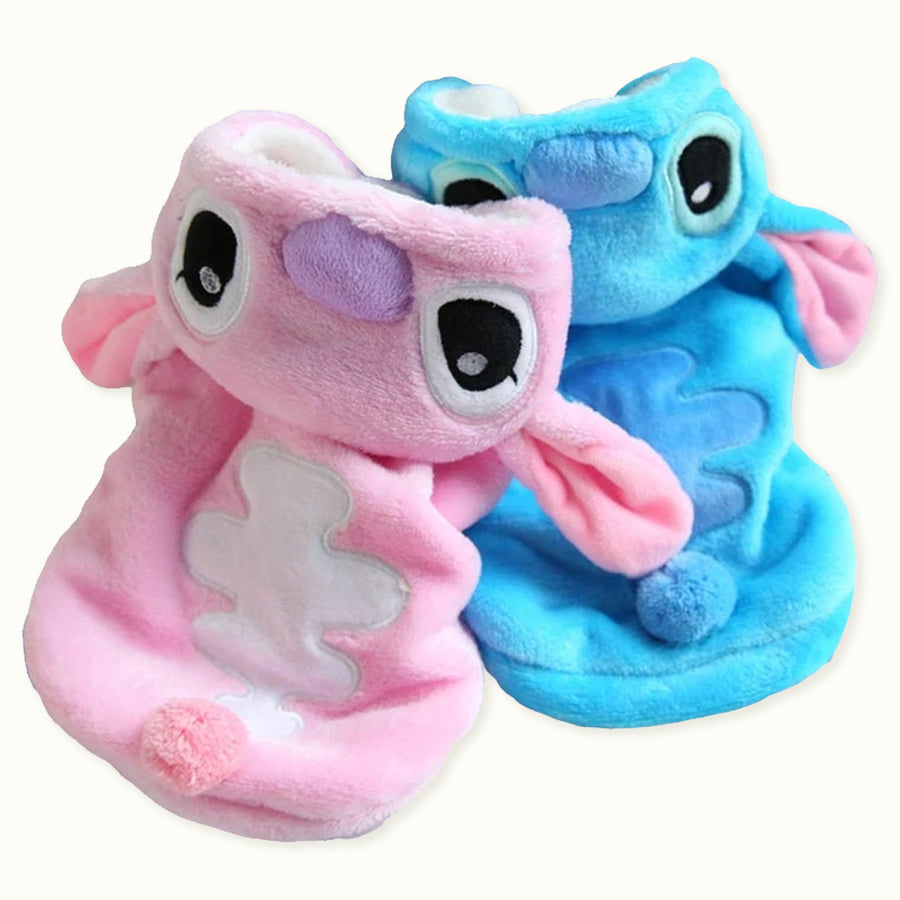
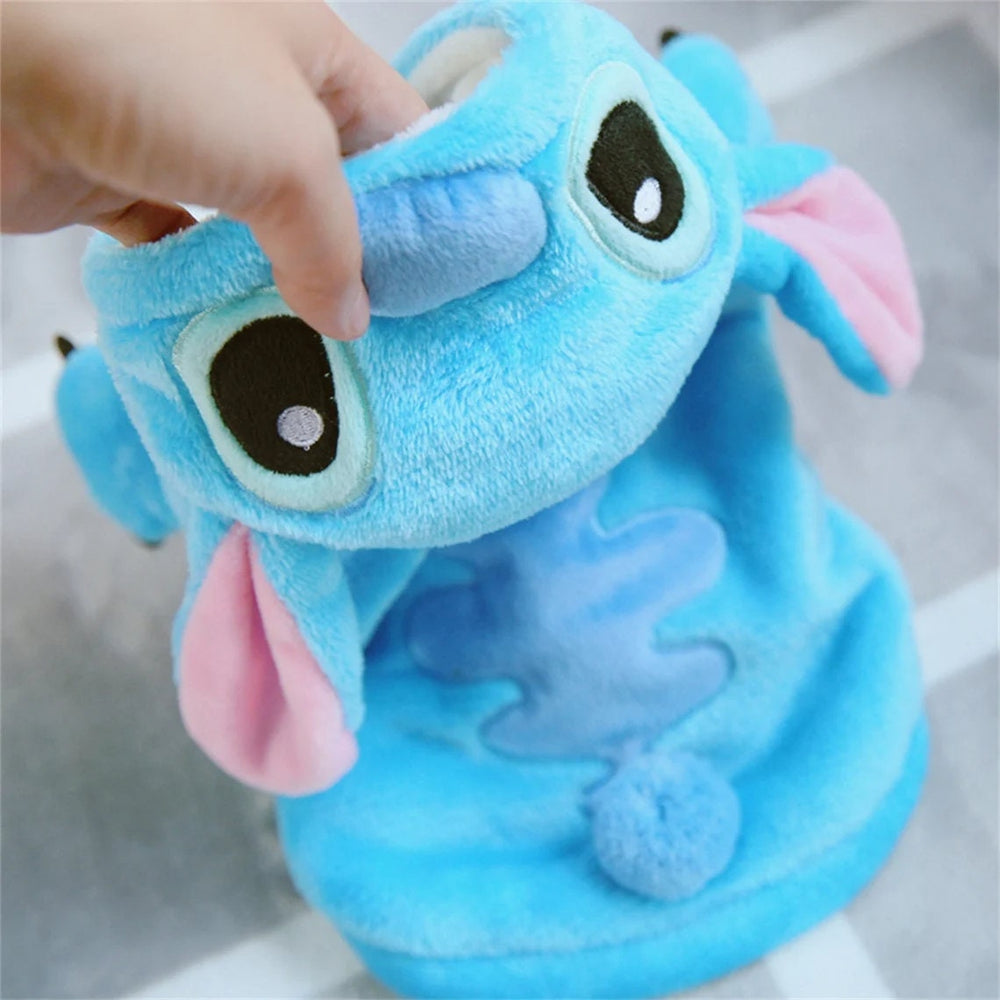



Leave a comment